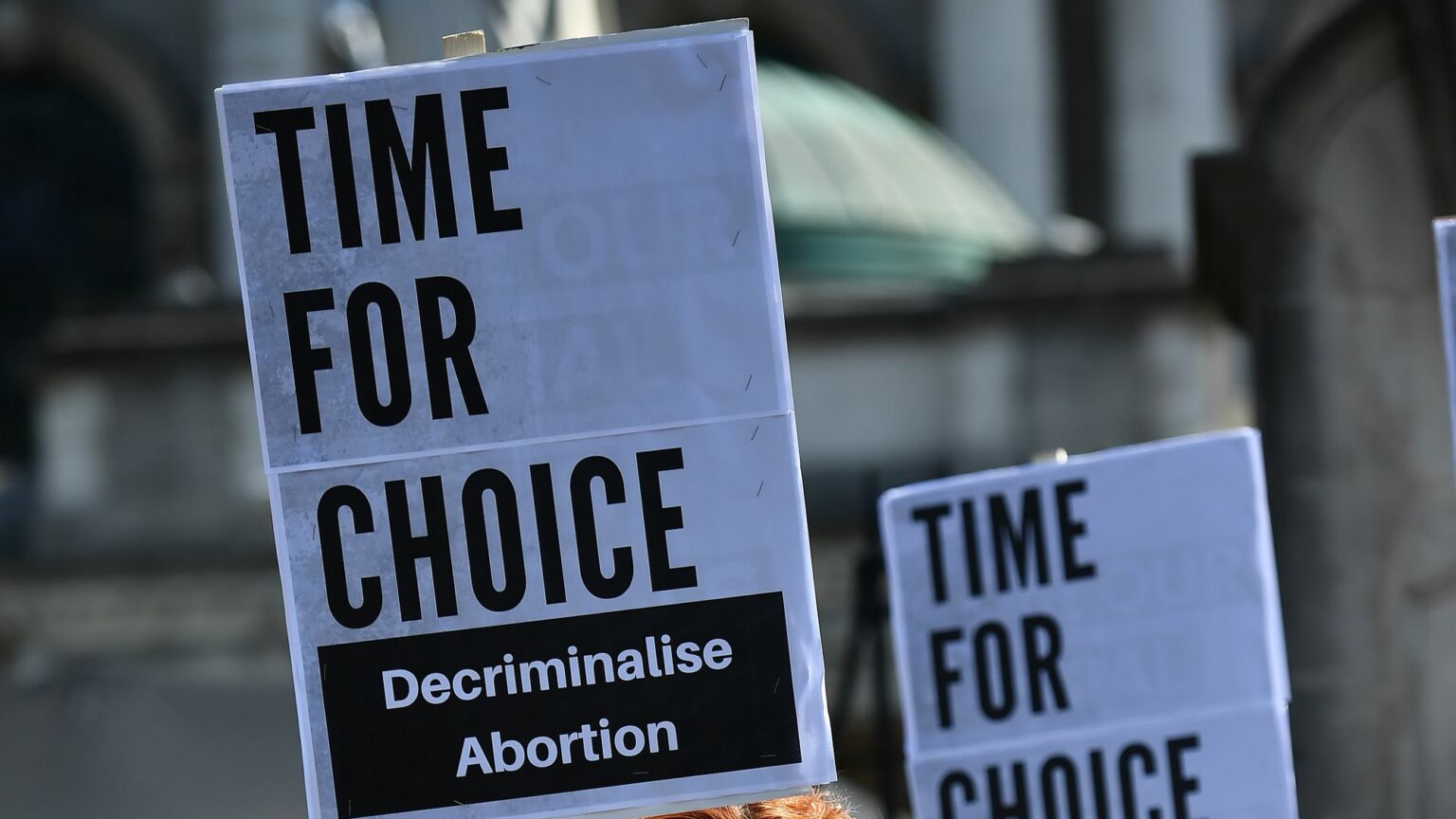Decriminalising abortion is long overdue
England and Wales could be one step closer to overturning our cruel abortion laws.

Want to read spiked ad-free? Become a spiked supporter.
Abortion law in England and Wales could soon change for the better. Next month, MPs in the House of Commons will debate an amendment to the Criminal Justice Bill that would effectively decriminalise a woman’s choice to end her pregnancy.
The modernisation of our archaic abortion laws is long overdue. Last year, we saw the tragic consequences of criminalising reproductive choice with the unjust prosecution of Carla Foster. Back in 2020, the 44-year-old mother of three took abortion pills when she was between 32 and 34 weeks pregnant. Under existing laws, abortion is only permitted up to 24 weeks, and must be carried out in a healthcare setting after 10 weeks. And so Foster was sentenced to two-and-a-half years in prison.
Foster’s imprisonment shocked the nation. Never before have the police sought to lock up women for having abortions. Of course, before abortion became legal in the 1960s, there were widespread prosecutions for back-street terminations. But the police always targeted the men who performed them, not the women who received them. There was a good reason for this, as these doctors would invariably go on to perform more abortions, whereas the women usually went back to living their lives.
What was the point, then, of incarcerating Foster for ending her own pregnancy? Prison would not deter her from repeating the act, since no one could reasonably believe she would want to go through such an ordeal again. Nor is there any pressing need to deter others, since self-termination of third-trimester pregnancies is not a growing trend. Foster has been punished for breaching the letter of a very outdated law.
When sentencing Foster last year, Justice Pepperall made a reasonable point: ‘If the medical profession considers that judges are wrong to imprison women who procure a late abortion, it should lobby parliament to change that law and not judges who are charged with the duty of applying [it].’
This is exactly what then happened. Over the past year, women’s groups and medical organisations have banded together to campaign for decriminalisation. Thanks to these efforts, Labour MP Diana Johnson’s proposed amendment will be debated and voted on when parliament resumes after Easter.
Johnson’s amendment calls for the ‘removal of women from the criminal law related to abortion’, ensuring that ‘no offence is committed by a woman acting in relation to her own pregnancy’. This means there will be no more cases like Carla Foster’s.
This would finally bring England and Wales’s outdated abortion law in line with both public and medical opinion. More than half of MPs support decriminalising abortion, including Conservative health secretary Victoria Atkins, who has all but confirmed that she will vote in favour. The Royal College of Obstetricians and Gynaecologists (RCOG) has long directed healthcare professionals not to report suspected cases of illegal abortions. RCOG president Dr Ranee Thakar made the college’s position clear earlier this year: ‘We firmly believe it is never in the public interest to investigate and prosecute women who have sought to end their own pregnancy. These women should be treated with care and compassion, without judgement or fear of imprisonment.’
With the amendment likely to pass in the Commons, we can certainly be optimistic about women no longer needing to fear prosecution. But we should not forget that decriminalisation is only a modest change to abortion law. Really, it is the very least we should expect from parliament. Indeed, it still fails to change the rules that drive women to self-induce abortions in the first place.
One problem with the current law is the requirement that legal abortions only be provided in clinics with special licences. This leads to long waiting times and can push women to seek out illegal alternatives. There is no reason why women could not be treated by their GP or obtain abortion pills from pharmacies, as they can in other countries.
And while Johnson’s amendment will decriminalise self-induced abortions after the 24-week time limit, that cut-off point will continue to affect women. Indeed, a woman could still be denied treatment from an abortion provider if her abortion is delayed by as much as a day. The threat of prosecution and imprisonment would still remain for doctors, so women who need to terminate a pregnancy will need to do it themselves. This is a scenario that no one would choose unless all other options had been exhausted.
Nor would the new law tackle the patronising requirement that two doctors must approve every abortion, so as to not violate the archaic 1967 Abortion Act.
Nevertheless, the upcoming vote is still a step in the right direction. If the new law passes, women will no longer fear prosecution for exercising their right to choose. Women should never be put in that position.
Ann Furedi is author of The Moral Case for Abortion: A Defence of Reproductive Choice.
Picture by: Getty.
Who funds spiked? You do
We are funded by you. And in this era of cancel culture and advertiser boycotts, we rely on your donations more than ever. Seventy per cent of our revenue comes from our readers’ donations – the vast majority giving just £5 per month. If you make a regular donation – of £5 a month or £50 a year – you can become a and enjoy:
–Ad-free reading
–Exclusive events
–Access to our comments section
It’s the best way to keep spiked going – and growing. Thank you!










Comments
Want to join the conversation?
Only spiked supporters and patrons, who donate regularly to us, can comment on our articles.